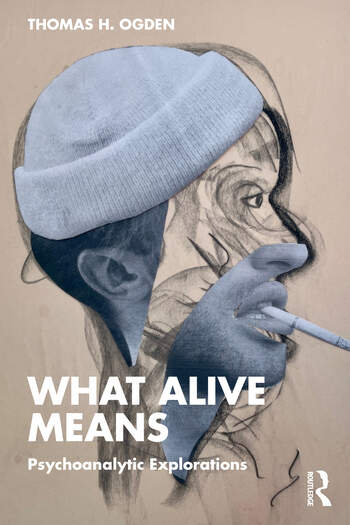The Emerging Tradition of Hans Loewald
Part of The Lines of Development series - more in this series

Book Details
- Publisher : Routledge
- Published : July 2024
- Cover : Paperback
- Pages : 212
- Category :
Psychoanalysis - Catalogue No : 97696
- ISBN 13 : 9781032685144
- ISBN 10 : 103268514X
Also by Rosemary H. Balsam
There are currently no reviews
Be the first to review
Alongside its companion volume, The Legacy and Promise of Hans Loewald, this book addresses the current lack of familiarity with the ideas and life of the eminent psychoanalytic teacher and scholar, Hans Loewald (1906–1993). It provides an account of the evolution of his ideas across different disciplinary fields.
Contributors to this volume take a broad look at Loewald’s impact on the fields of sociology, anthropology, and feminism, language development, as well as delving into his work’s significance for the sublimatory potential of religion, music, the arts. This volume shows how Loewald’s thinking about internalization can adapt to our ever-changing social and cultural environment, even offering a Loewaldian lens to understand the contemporary use of psychedelics in mental health treatment. Ultimately, this book demonstrates that, after Loewald – as would have been his wish – for those who read him, psychoanalysis as an approach to mental health can never languish in stasis.
Animating this powerful, yet contained and complex man, there are contributions from his family, students, and analysands, and an introduction to the new virtual Loewald Center, making this volume essential reading for any psychoanalyst or psychotherapist working today.
Reviews and Endorsements
These books show why so many people see Hans Loewald as the unmatched innovator in Freudian psychoanalysis and the most profound extender of its possibilities. Loewald brings out a whole new dimension of the Freudian mind. If you are disappointed that the Freudian discovery seems to miss the hopeful vibrance of human life, you will be amazed to see what Loewald draws from the tradition.
If you're a clinician whose old terms seem a little stiff and mechanical, your professional adventure will be refreshed when you see those terms spring to life. Loewald worked quietly without proselytizing, but his writing and teaching have kindled wide enthusiasm, and a Hans W. Loewald Center has formed, from which we have this collection of scholars and practitioners who explore applications of Loewald's outlook to the nature of mind and mankind, the workings of treatment and the wider use of theory.
Experts here discuss the philosophical grounding that silently underlies Loewald's thinking about, for example, the mental scrambling of past, present, and future and the role of "futurity" in all present experience. A chapter recounts Loewald's uneasy reception by associates, and there are comparisons of his relationship to other theorists such as Winnicott and Laplanche. Other topics include a Loewaldian approach to gender, Loewald's theory of language, his reflections on religion, on mourning, on adolescence and of course the impact of his great mini-monograph on the therapeutic action of psychoanalysis.
Despite his courageous independence, Loewald was the most self-effacing of pioneers, and the editors anticipate our personal curiosity by including chapters on his training, the legacy of his studies with Heidegger, and what it was like to be treated or supervised by Loewald as a clinician. To get a fuller sense of Loewald as a person, we hear from his family as well.
These books are a treasure trove for Loewaldians, and a prospectus for those who have wondered what all the fuss is about. It announces a new era of innovation that might, indeed, go far to secure a future for psychoanalysis.
Lawrence Friedman, MD, clinical professor of Psychiatry, Weill-Cornell University College of Medicine; Psychoanalytic Association of New York
Loewald writes poetically: "We would say that the patient instead of having a past, is his past. He does not distinguish himself as a rememberer from the content of his memory."
This wonderful book conveys how the language of Loewald speaks to us profoundly, enlightens us, helps us clinically and theoretically, and conveys also that psychoanalysis may be approached in many different ways. Loewald has engaged Freud in such a complex fashion that we too become deeply involved with his investigation. I believe that everyone in the psychoanalytic field is looking towards the future, can benefit from this exciting, new encounter with Loewald.
Haydée Faimberg, MD, training and supervising analyst, Paris Psychoanalytical Society (SPP); author of The Telescoping of Generations; winner of the Sigourney Award for Outstanding Achievement
Table of Contents
Foreword
Lawrence Friedman
Introduction
Part One - Developing Loewald
1. On the Therapeutic Action of Reading Loewald, Then to Now
Nancy Chodorow
2. Loewald's Sublimation or Oneness Regained
Giuseppe Civitarese and Angela Cappiello
3. Creative Innovators: Loewald and Laplanche
Doris K. Silverman
4. Theory of Language as Clinical Theory
Jeanine M. Vivona
5. A Missing Link: Hans Loewald and Marion Milner
Nancy Olson
6. Musical and Sacred Resonances in Loewald's Writing: Recapitualtive Journeys, Celebrations of Oneness Regained
Jenifer Nields
7. Hans Loewald: Thoughts on Religion
Lorraine Siggins
8. Of Timelessness, Ineffability, and Unity: Hans Loewald, Psychoanalysis and Our Psychedelic World
Gretchen Hermes
9. Origins
Oscar Hills
Part Two - Personal Loewald
10. Brief Thoughts on my Father, Language and Attachment, and Life's Generational Vicissitudes
Caroline Loewald Farnham
11. Analyst and Teacher
Supervision with Hans
Richard Munich
At the Mailbox
Tsilia Glinberg
Analysis with Dr Loewald
Barbara Rosen Garber
12. Hans W. Loewald: Quiet Revolutionary, Creative Synthesizer, Inspiration for 21st Century Psychoanalysis: An Introduction to The Hans Loewald Center
Margery Kalb
13. Meanings of These Books and the New Loewald Center to the Family
Elizabeth Loewald
About the Editor(s)
Rosemary H. Balsam, F.R.C. Psych., M.R.C.P is Associate Clinical Professor of Psychiatry, Yale Medical School; Staff Psychiatrist, Yale Department of Student Mental Health and Counseling; and Training and Supervising Analyst, Western New England Institute for Psychoanalysis.
More titles by Rosemary H. Balsam
Elizabeth A. Brett, Ph.D., is in private practice in New Haven, Connecticut and a training and supervising analyst at the Western New England Institute for Psychoanalysis.
More titles by Elizabeth A. Brett
Lawrence Levenson, M.D., is Training and Supervising Psychoanalyst and Former Chair of the Education Committee at the Western New England Institute for Psychoanalysis.
Customer Reviews
Our customers have not yet reviewed this title. Be the first add your own review for this title.








